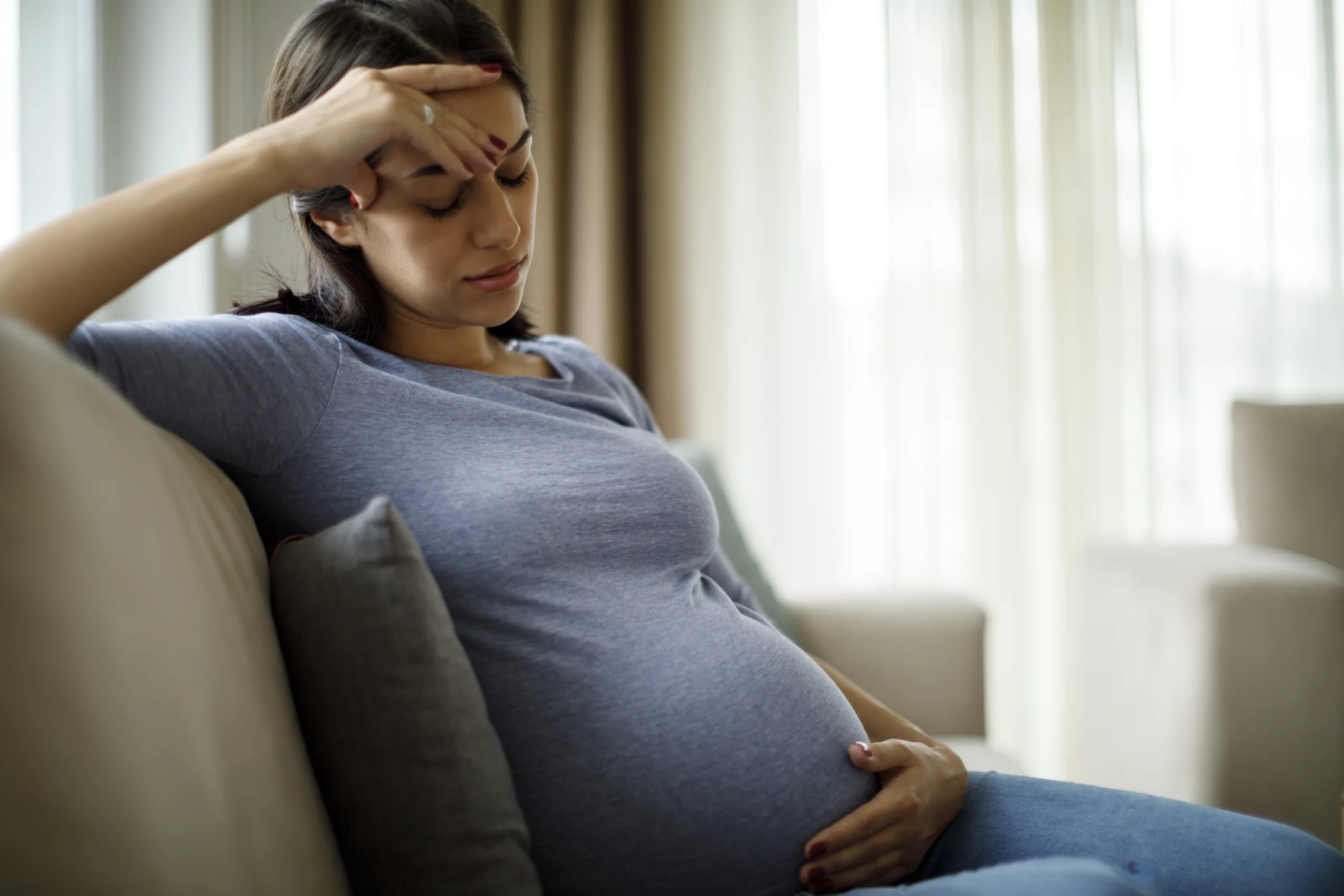
It is a generally known fact that eating disorders do not discriminate — anyone, regardless of race, gender or age, can face the mental health challenges and physical health complications that eating disorders present.
Pregnant women are no exception. With a specific form of eating disorder more commonly seen among them — known as “pregorexia” — they require a specific and personalized form of treatment to ensure the wellbeing of both mom and baby.
What is pregorexia?
Pregorexia, though not officially recognized in medical diagnostics, describes a combination of pregnancy and anorexia, where expecting mothers experience an intense fear of gaining weight and engage in behaviors typical of eating disorders, such as excessive dieting and exercise, to prevent weight gain associated with pregnancy.
Pregorexia is just one of the many ways the pressures of society placed on women to maintain a certain appearance manifest. The media often celebrates women who “bounce back” to their pre-pregnancy bodies soon after childbirth, inadvertently promoting unrealistic expectations that your body shouldn’t change too much while pregnant.
But this is an unrealistic experience and such societal pressures can actually worsen any mental health struggles in pregnant women, particularly those with a history of eating disorders, leading them to unhealthy practices to control weight gain during pregnancy.
The impact of pregorexia extends beyond the mother, and negatively affects fetal development as well. Inadequate weight gain and malnutrition of the mother can lead to several complications, including low birth weight, preterm birth and developmental issues for the baby.
What are the signs of pregorexia?
For expecting mothers struggling with pregorexia various physical and behavioral signs will most likely begin showing up in their life as their habits and routines shift to meet the unhealthy demands of the disorder. Recognizing these signs early is crucial for the health of both the mother and the developing fetus.
Common signs include:
- Excessive concerns about gaining weight, including constantly checking the scale or expressing distress over normal pregnancy weight gain;
- Restrictive eating habits, including severely limiting calorie intake, skipping meals or following restrictive diets that do not provide the necessary nutrients for pregnancy;
- Engaging in excessive or compulsive exercise, often beyond what is safe or recommended during pregnancy;
- A preoccupation with body shape, size or appearance, which is disproportionate to the changes naturally occurring during pregnancy;
- Repeatedly making negative or anxious comments about their own body or the fear of “getting fat;”
- Skipping or postponing prenatal appointments to avoid talking about weight gain or to prevent healthcare providers from noticing weight loss or insufficient gain;
- Displaying secretive eating behaviors, such as eating alone to hide the quantity or type of food consumed;
- Physical signs including signs of malnutrition, like dry skin, hair loss or feeling faint, as well as growth retardation in the unborn baby if the mother is not receiving adequate nutrition;
- Spending a lot of time and energy reading nutrition and ingredient labels and calculating calories;
- Engaging in unhealthy practices like using laxatives or diuretics to control weight.
While not every woman will display every symptom, knowing the most common ones can help in starting a necessary conversation.
The dangerous effects on mom and baby
As mentioned briefly above, the effects of pregorexia on both the mother and the baby can be highly dangerous, so preventative care and professional intervention is valuable.
Complications for the mother include:
- Malnutrition, where Inadequate intake of essential nutrients can lead to deficiencies, affecting overall health and energy levels, and increasing the risk of complications during childbirth;
- Dehydration— Insufficient fluid intake (commonly seen alongside restrictive eating) causes dehydration which impacts bodily functions and increases the risk of preterm labor
- Poor bone health — Due to inadequate calcium and vitamin D intake, pregorexia can lead to bone density loss;
- Worsening mental health — Pregorexia can exacerbate anxiety, depression and severe emotional distress, impacting the mother’s mental health both during and after pregnancy;
- Postpartum depression — The stress and nutritional deficiencies associated with pregorexia may contribute to the development of postpartum depression.
Complications the baby is likely to experience include:
- Low birth weight;
- Poor neuro development which can lead to developmental delays and cognitive problems;
- Preterm birth;
- Stillbirth or miscarriage, where severe cases of malnutrition and dehydration can tragically result in miscarriage or stillbirth.
These complications can cause increased stress in the mother and are likely to compound already poor mental health symptoms.
How is pregorexia treated?
Addressing pregorexia requires a comprehensive, multidisciplinary approach to support both the physical and mental health needs of the mother and the baby.
Most treatment plans include a personalized version of the following:
- Nutritional counseling — Working with a registered dietitian can help develop a balanced meal plan that supports healthy pregnancy weight gain and addresses nutritional deficiencies;
- Psychotherapy — Cognitive-behavioral therapy (CBT) and other therapeutic approaches are effective in treating the underlying psychological issues contributing to the eating disorder. Therapy can help in reshaping negative thoughts about weight and body image;
- Medical check-ins — Regular prenatal check-ups are vital to monitor the health of both the mother and the fetus. Medical supervision can ensure appropriate weight gain and address any arising complications promptly;
- Support groups — Joining support groups for pregnant women facing similar issues can provide emotional support and encouragement, helping them feel less isolated in their struggles;
- Family ties — Involving family members or partners in the treatment process can provide additional support. Educating them about pregorexia can also help in creating a positive and understanding environment.
Pregorexia isn’t something you have to face alone — seeking the support of loved ones and professional treatment of mental health specialists can be significantly helpful in allowing you to recover.
Treatment for pregorexia
If you find yourself struggling with the symptoms and effects of this disorder, or have noticed signs and symptoms in your partner or friend, help is available.
Reach out to Seeds of Hope anytime to get in touch with a therapist by calling (610) 679-8262 or fill out an online contact form to get your recovery process started today.

